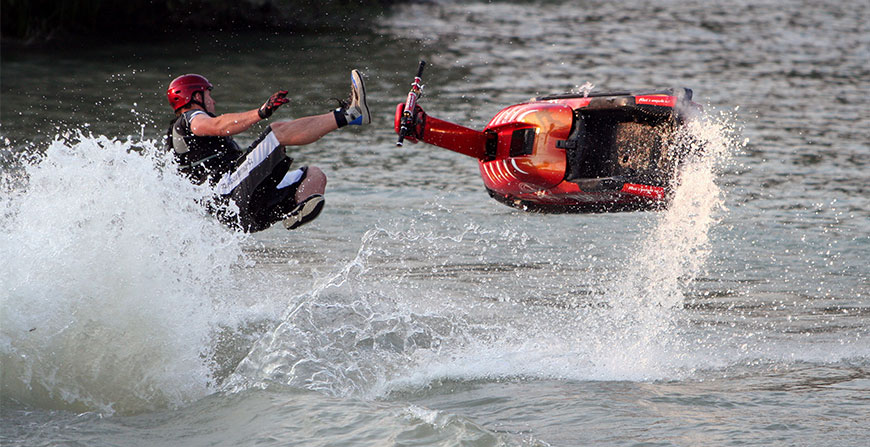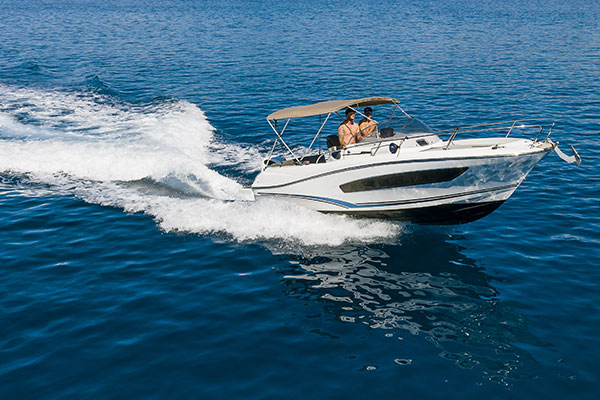
Texas Boat Accident Lawyers
Tough representation when boating and personal watercraft accidents cause serious injuries
Texans enjoy our rivers, lakes, bayous, creeks, and waterways year-round. For most residents and tourists, boating and other water activities are a great way to appreciate the outdoors. Once you learn to boat and swim, the types of activities are almost endless. However, it is important to remember that Texas waterways can be dangerous. They all have different currents and different rules of navigation, and different activities have risks of serious injuries and fatalities.
At Slack Davis Sanger, our Texas boat accident lawyers understand the joys and risks of spending a day on the water. We are avid boaters ourselves, and we understand firsthand the risks that come with spending time on the water. We are also skilled litigators who have represented individuals and families who suffered catastrophic injuries in boat and watercraft accidents. Our personal injury lawyers are skilled at showing how boat accidents happen and who is responsible. We offer practical guidance about your options, and can help you choose the best path for your needs. Contact our Texas boat injury lawyers after any water-related accident for experienced assistance.
"Slack Davis Sanger represents the ultimate in professionalism combined with a true caring attitude.” - Colonel Ray Toler, Client
What are some of the regularly used waterways in Texas?
Our boat accident lawyers represent and have represented injury victims and families when accidents occur on any Texas waterway. Major Central Texas rivers, according to the Texas Parks and Wildlife Department, include:
|
|
Some of the popular lakes in and near Dallas, Fort Worth, and Austin include:
Dallas: Lake Ray Hubbard, White Rock Lake, Grapevine Lake, Bachman Lake, Joe Pool Lake, and many others.
Fort Worth: Lake Worth, Eagle Mountain Lake, Benbrook Lake, Lake Bridgeport, Possum Kingdom Lake, and Moss Lake.
Austin: Lake Travis, Lake Austin, Lake Lyndon B. Johnson, Canyon Lake, Lady Bird Lake, and Inks Lake.

The rules and regulations change when you are operating a vessel offshore or in open water. If you suffered an injury while in the Gulf of Mexico or while operating in waters outside of Texas, we can help.
What are common causes of boating accidents in Texas?
Many boating accidents occur due to negligence, whether another boater’s negligence, or as a result of defective equipment. At Slack Davis Sanger, we are skilled at showing that water accidents are due to one or more of the following causes:
Operating while intoxicated. Almost half of all boating accidents involve alcohol or drugs. It is illegal to operate a watercraft while intoxicated in Texas; the legal standard of .08 blood alcohol content (BAC) applies on water as it does on land. However, an operator who is mentally and/or physically impaired in any way cannot operate or boat, jet ski, or other watercraft in Texas, even if she or she has a BAC under the legal limit. Operating a boat while intoxicated is similar to operating a car while intoxicated. Drunk operators cannot control their boat and cannot anticipate dangers. Other boats and swimmers have no way of steering clear of an impaired boat operator.
Operator inexperience/lack of training. All boat operators should take educational courses for their type of boat. Inexperienced operators should navigate their boats with the help of experienced operators. The Texas Parks and Wildlife Department (TPWD) requires that anyone who turns 18 on after September 1, 2021, must complete an authorized TPWD boater education course if they operate a motorized boating vessel with more than 15 horsepower or a windblown vessel over 14 feet in length. One safety course is not really enough, though, to ensure that an operator will be safe and prepared. Texas has many laws that govern boat operation, boat ownership, and boating safety. There are different laws for operating boats and for operating personal watercraft. An operator must know and abide by all of them. Failing to do so can lead to catastrophe.
Negligence, speeding, and recklessness. Many Texas boating accidents happen because operators are distracted or fail to follow standard rules for a particular type of boat. Speeding is a common cause of boat accidents, too.
Defective boating or safety equipment. Manufacturers have a duty to ensure their boats, boat parts, and safety equipment work. Defective boats can cause fires, electrical accidents, navigational accidents, fuel line leaks and explosions, carbon monoxide poisoning, and other incidents that lead to catastrophic injuries and losses. It is critical that operators ensure their boats are seaworthy and that they have enough safety equipment on board for all passengers.
Low visibility and poor weather. The weather can make it hard to see and hard for others to see you. Boaters and watercraft operators need to prepare for bad weather, including knowing when they should stop, what they can do to avoid accidents, when they should get off the waterway, and when they should avoid leaving the dock at all. Operating a boat at night or in low visibility is especially dangerous; it is not as if boats and jet skis have lanes they can follow, as cars and trucks do. The risk of collision is high, and there are increased challenges to search and rescue efforts at night and in foggy situations.
According to the Texas Parks & Wildlife Department, in 2020 boating accidents were at a 30-year all-time high. “More than 70 percent of boating accidents that occurred in 2020 were on open motorboats or personal watercraft.”
What types of boat accidents do your Texas lawyers handle?
Our Texas boat accident attorneys are prepared for all types of accidents. We represent victims in the following types of watercraft-related claims:
|
|
At Slack Davis Sanger, we file claims for all types of Texas boating accidents including:
|
|
What types of boating and watercraft injuries do you handle?
Our Texas boat and PWC accident lawyers handle all types of serious injuries – no matter the cause of the accident, the type of accident, or the type of boat. We work with you, your medical team, and our own network of doctors when any victims suffer:
- Traumatic brain injury
- Burn injury
- Spinal cord damage or paralysis
- Traumatic amputation or limb loss
- Compound fractures
- Internal organ damage
- Scarring or disfigurement
- Electrocution
- Brain damage from oxygen deprivation
Who is liable for my boating accident and injuries?
At Slack Davis Sanger, we file claims against all responsible parties and defendants. Often, more than one defendant is liable for your injuries. Potential defendants include:
- A boat or PWC operator
- The owner of the boat or PWC, if different than the operator
- A boat rental company
- A boat touring business
- A manufacturer, if a defective part or safety item caused the accident
Other passengers and people in the waterway may also be responsible if they engaged in reckless or negligent behavior that contributed to your accident.
How much is my boat accident claim worth?
Our Texas boating accident attorneys work with your doctors, employers, and others to maximize your potential compensation. Damages can include your associated medical expenses and wage losses, plus your pain and suffering (physical and mental trauma included).
In some cases, we seek punitive damages, which our attorneys can explain in an initial consultation. If a loved one died in a Texas boating or PWC accident, we can file a wrongful death claim on your behalf.
Is there a deadline for filing a boat accident claim in Texas?
Texas has a two-year statute of limitations for personal injury and wrongful death claims – but the time limit can be as little as 30 days if your injury occurred in publicly managed waters, or if a state or local government agency or employee was involved. Delay can make it more difficult to prove your claim, and can also prevent you from getting the medical care you need. Call Slack Davis Sanger as soon as you can so you will not be time-barred from seeking damages.
Do you have a boat accident lawyer near me?
Slack Davis Sanger has three convenient Texas locations:
- Austin, at 6001 Bold Ruler Way, Suite 100
- Dallas, at 3500 Maple Avenue, Suite 1200
- Fort Worth, at 100 Lexington Street, Suite 70
Get immediate help. Contact our Texas boat and watercraft accident lawyers now
Slack Davis Sanger fights for Texas boat and PCW accident victims and their families. We have a strong record of success throughout Texas. Our lawyers have obtained numerous successful verdicts and settlements for a variety of clients throughout the country. To learn how we can help you with your boat accident case, please call 800-455-8686 or fill out our contact form to schedule a free consultation.
